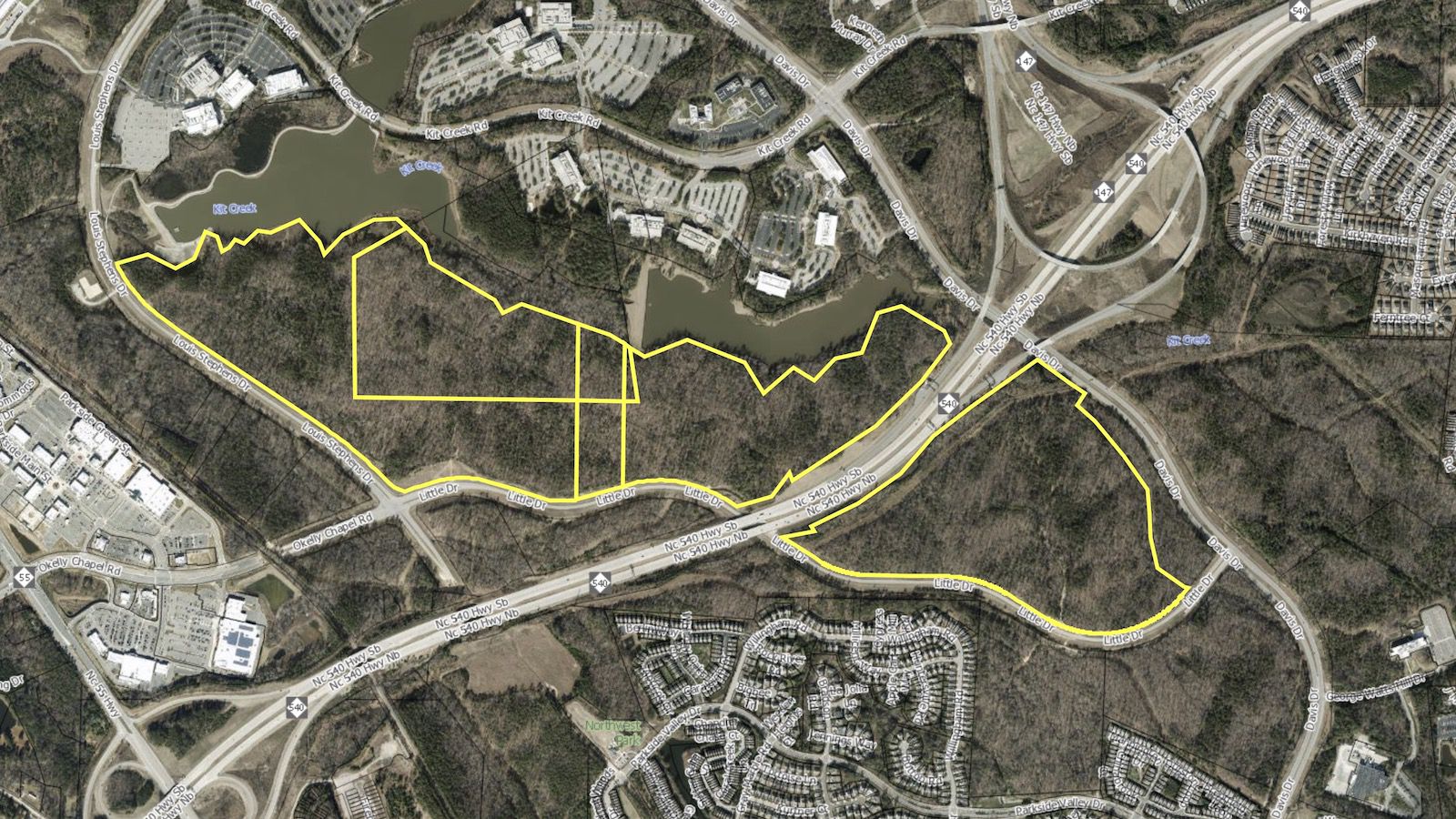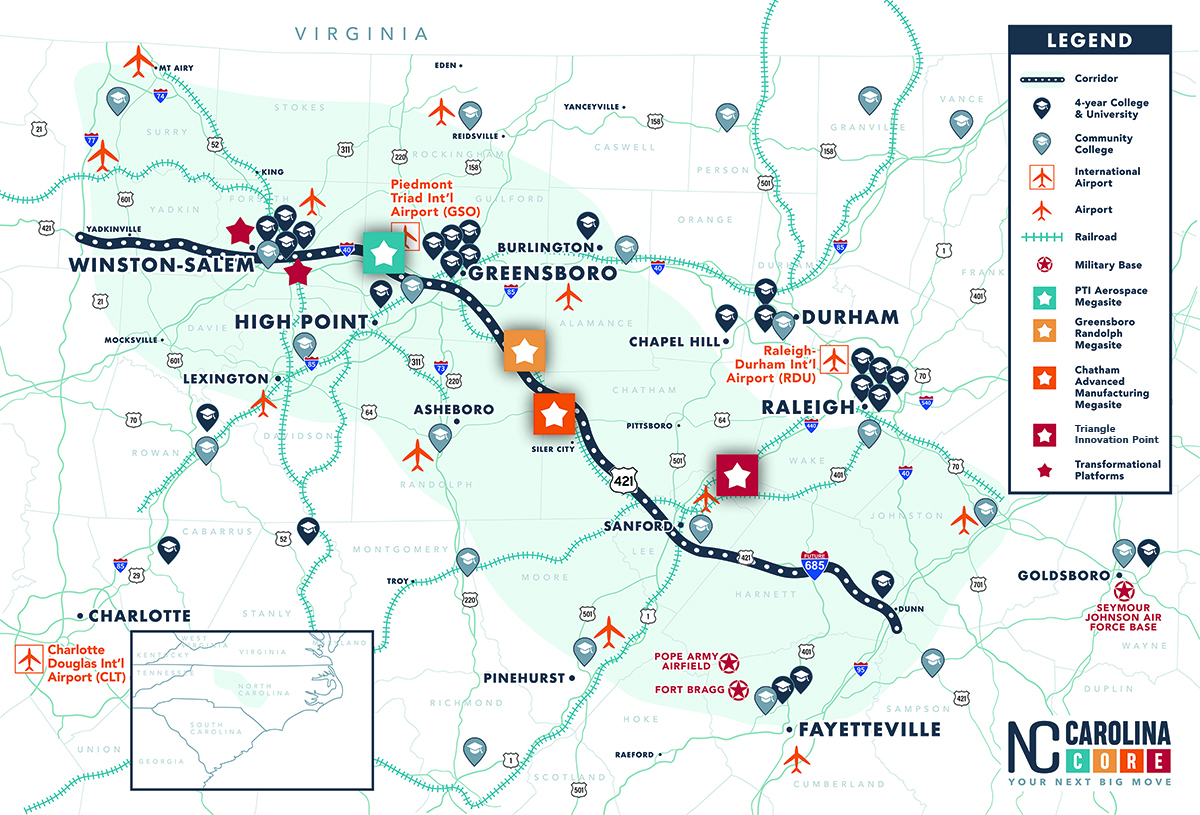Regional Approaches Attract Big Business to North Carolina
Rather than pitting municipalities against each other, competing for jobs created and tax base gains from corporate investments, successful regional efforts promote the broader region based on recognition that neighboring communities can be more successful by working together. These types of regional efforts prove successful in attracting big business to North Carolina in regions like the Triangle and Carolina Core.

The Problem
“A rising tide lifts all boats.” This way of thinking drives many local leaders to push for big businesses to locate and expand in North Carolina. Many larger businesses have been moving to North Carolina in recent years. Notably, Apple committed to building a second campus in the Triangle region. For many business executives, the decision about where to locate a company involves managing the risks involved.
New headquarters and manufacturing plants do not inherently make a company successful because they need the benefits that come from the surrounding community and local governments. In particular, governments that take a long-term approach to planning are beneficial as companies want to plan for success in the future and manage their risks. A large, diverse talent pool is also a key factor that many companies use when deciding where to locate. A new facility offers little benefit unless there are talented workers to staff it.
The Solution
Finding many of these qualities drives business executives to locate their firms in North Carolina and often the Triangle region. Executives are attracted to the large talent pool of workers that exists because of the higher education institutions in the region and the substantial number of people who continually relocate from other parts of the nation. Workers move to North Carolina expecting ample job opportunities and companies are able to hire more effectively because of this mindset.
Cooperation between municipalities is also a common reason companies choose to move into the Triangle region. For example, Apple cited the close relationship between Raleigh and Durham as a factor influencing its decision to move to the Triangle. Close relationships between municipalities represent a commitment to working together for a better and more prosperous region and long-term planning.
 Assemblage of seven properties in Research Triangle Park owned by Apple
Assemblage of seven properties in Research Triangle Park owned by Apple
The Players
In another part of the state, Carolina Core is a group dedicated to promoting the Piedmont Triad region as an industrial hub. What makes them unique is that their approach and marketing tactics do not reflect municipal or county boundaries like traditional economic development efforts. Rather than pitting municipalities against each other, competing for jobs created and tax base gains from corporate investments, Carolina Core focuses on promoting the region as a whole. Everyone in the region can benefit from companies locating anywhere in broader Piedmont Triad.
The Carolina Core stretches from Winston-Salem, through Greensboro, then turns south toward Sanford and Fayetteville. The region boasts a robust transportation network, with US Highway 421 running through its center, and provides easy access to Interstates 40 and 85. The region also contains four megasites, a rarity in the southeastern United States. Megasites are large, industrial complexes waiting for companies to move in and build. They provide an important strategic advantage to the region, giving companies an easier time finding suitable land to start the building process. Megasites also allow similar companies to locate near each other, which can further attract industry once a company established itself in a site. A number of higher education institutions are located within the Carolina Core, and even more are nearby in the Triangle region. The educational opportunities available attract companies to the region by ensuring they will be able to hire from a wide swath of skilled workers.
Carolina Core map
The Promise
Companies provide jobs for many workers throughout a region. They expand the tax base of the jurisdictions where they locate, which in turn helps governments provide more and higher quality services to their residents. They support local businesses by attracting workers who will patronize those businesses.
Some companies even take a more hands-on approach to spreading community benefits. Apple, as a part of its new campus, is partnering with Shaw University in Raleigh to train and educate students for jobs at Apple. The company plans to expand these opportunities to other historically black colleges and universities in the region as well.


